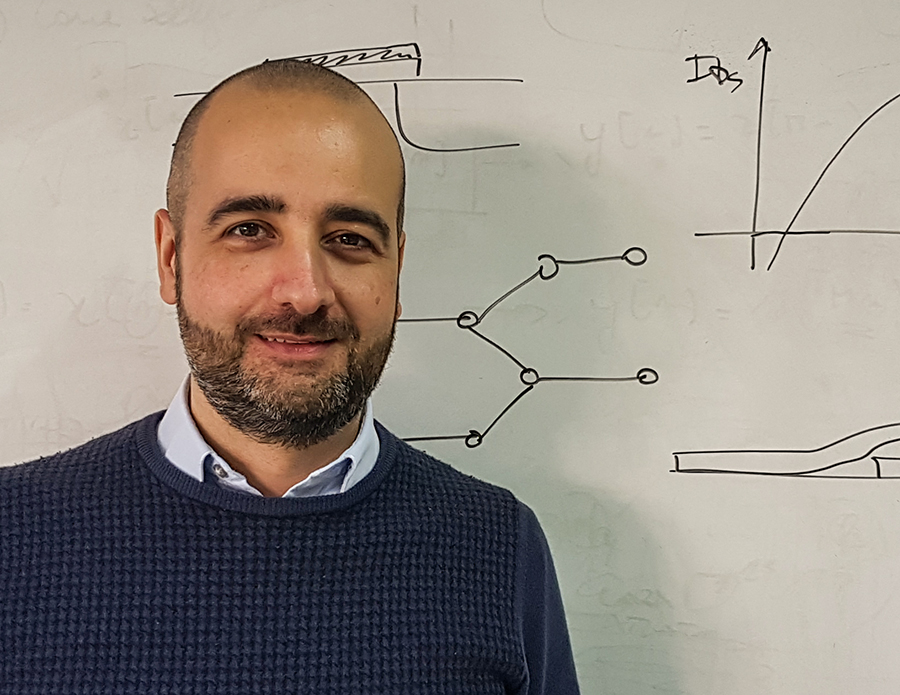
ERC Proof of Concept project (ERC-2020-PoC): PREPRINT - High precision material printer for electronics
Professor Gianluca Fiori, professor of Electronics at the Information Engineering department, currently holds two prestigious grants from the European Research Council.
With an ERC Consolidator Grant project already underway, Prof. Fiori is also one of the 55 European researchers awarded an ERC Proof of Concept at the end of 2020. This grant of 150,000 euros from the European Research Council is aimed at supporting ideas that have strong potential for generating an innovative marketable product.
The PREPRINT- High precision material printer for electronics project intends to create a printer that can manufacture electronic micro-devices with dimensions in the realms of a micrometre on flexible substrates such as paper, with much higher resolutions than those currently obtainable with commercial printers. The idea of the printer was born as part of the research carried out under the PEP2D project, funded in 2018 with an ERC Consolidator Grant and which now, with the Proof of Concept, can aspire to become a marketable product. The printer prototype created has already shown that it is possible to create electronic devices printed on flexible materials such as paper, by exploiting the exceptional electrical and mechanical properties of two-dimensional materials.
ERC Consolidator Grant Project (ERC-2017-COG): PEP2D - Printable Electronics on Paper through 2D materials based inks
The project involves the applications of two-dimensional materials, such as graphene, in the field of electronics for the construction of electronic circuits, such as those contained for example in our computers and smartphones, and which in the future may be printed on flexible media such as paper.
The research funded aims to use this technology to print integrated circuits and transistors. As Prof. Fiori explains, "in the not-too-distant future, we may perhaps be able to print ourselves an iPad or a smartphone, using a simple inkjet printer and a sheet of paper. We will therefore be able to design and print "customized" devices, which meet our specific needs, have low environmental impact and are easily disposable.”
This futuristic scenario appears possible thanks to the properties of special inks composed of two-dimensional materials (as thin as a single atomic layer), that are water-based, biocompatible and suitable for low-cost technology such as inkjet printing. This technology would have countless applications, including smart labels for industry 4.0, biomedical devices for analysing biometric signals, and smart anti-counterfeiting methods.
Related documents:
